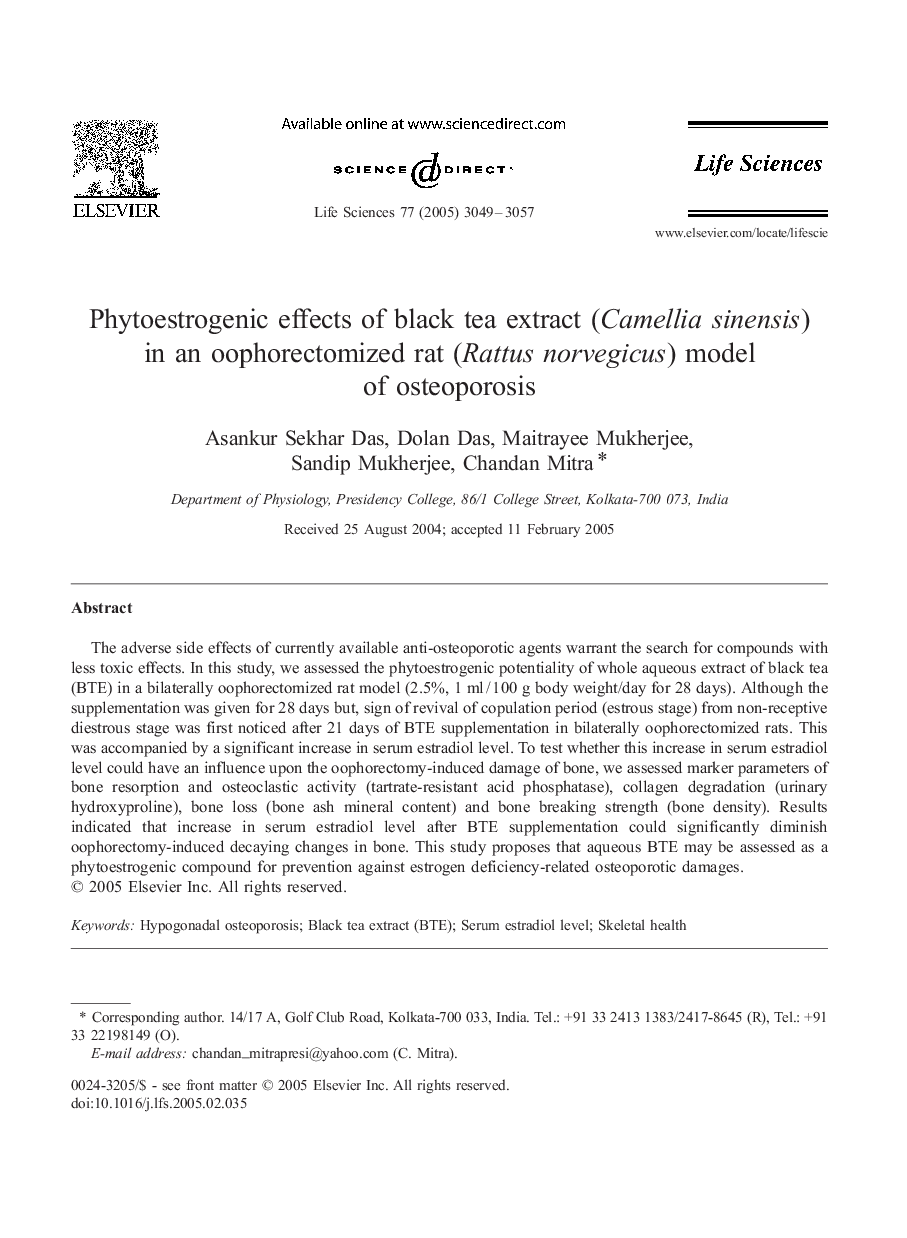| Article ID | Journal | Published Year | Pages | File Type |
|---|---|---|---|---|
| 2553398 | Life Sciences | 2005 | 9 Pages |
The adverse side effects of currently available anti-osteoporotic agents warrant the search for compounds with less toxic effects. In this study, we assessed the phytoestrogenic potentiality of whole aqueous extract of black tea (BTE) in a bilaterally oophorectomized rat model (2.5%, 1 ml / 100 g body weight/day for 28 days). Although the supplementation was given for 28 days but, sign of revival of copulation period (estrous stage) from non-receptive diestrous stage was first noticed after 21 days of BTE supplementation in bilaterally oophorectomized rats. This was accompanied by a significant increase in serum estradiol level. To test whether this increase in serum estradiol level could have an influence upon the oophorectomy-induced damage of bone, we assessed marker parameters of bone resorption and osteoclastic activity (tartrate-resistant acid phosphatase), collagen degradation (urinary hydroxyproline), bone loss (bone ash mineral content) and bone breaking strength (bone density). Results indicated that increase in serum estradiol level after BTE supplementation could significantly diminish oophorectomy-induced decaying changes in bone. This study proposes that aqueous BTE may be assessed as a phytoestrogenic compound for prevention against estrogen deficiency-related osteoporotic damages.
